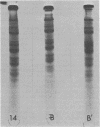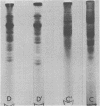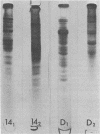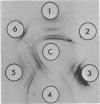Abstract
Canine mycoplasmas which had been characterized by biological and serological methods were further studied by using polyacrylamide gel electrophoresis (PGE) and double diffusion in agar gel. The three dog mycoplasmas previously characterized, Mycoplasma canis, M. maculosum, and M. spumans showed distinctive patterns by PGE. Five additional representative isolates from dogs had been characterized serologically and biologically into three new groups, A, C, and D. An additional mycoplasma (group B) was indistinguishable from M. canis by growth inhibition and PGE but was more broadly reactive with field isolates serologically. The group A organisms were distinctive in pattern and similar to those studied by Razin and Rottem, tentatively designated M. edwardii. The group C organisms were represented by two isolates which were similar by fluorescent-antibody studies but different by growth inhibition tests. These two isolates were also different from each other by PGE. The group D serotypes were also distinctive by PGE from all other dog mycoplasmas tested. It was found, during these studies, that two different mycoplasmas showed different PGE patterns at different intervals during incubation. Immunodiffusion studies showed a relationship among all the canine mycoplasmas, and bands of nonidentity between the two group C mycoplasmas were demonstrated.
Full text
PDF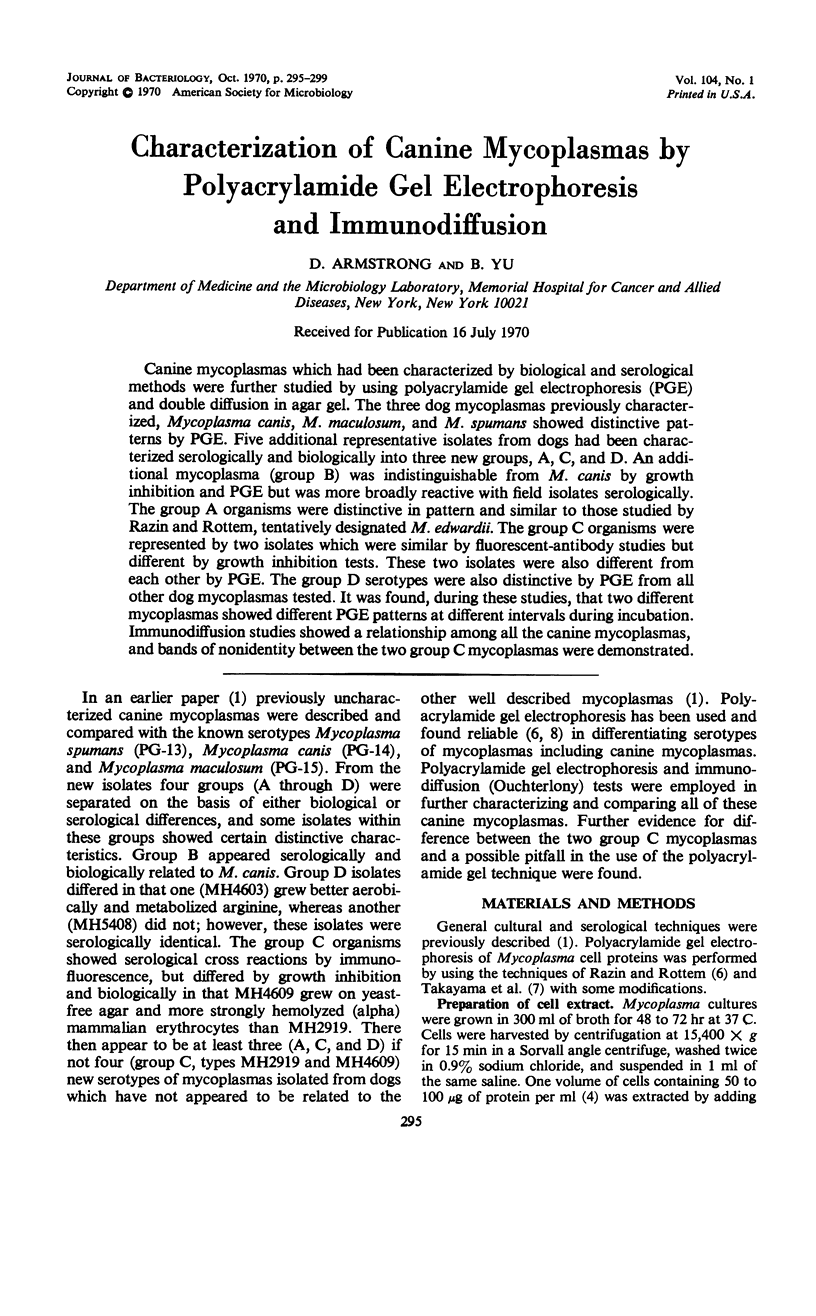
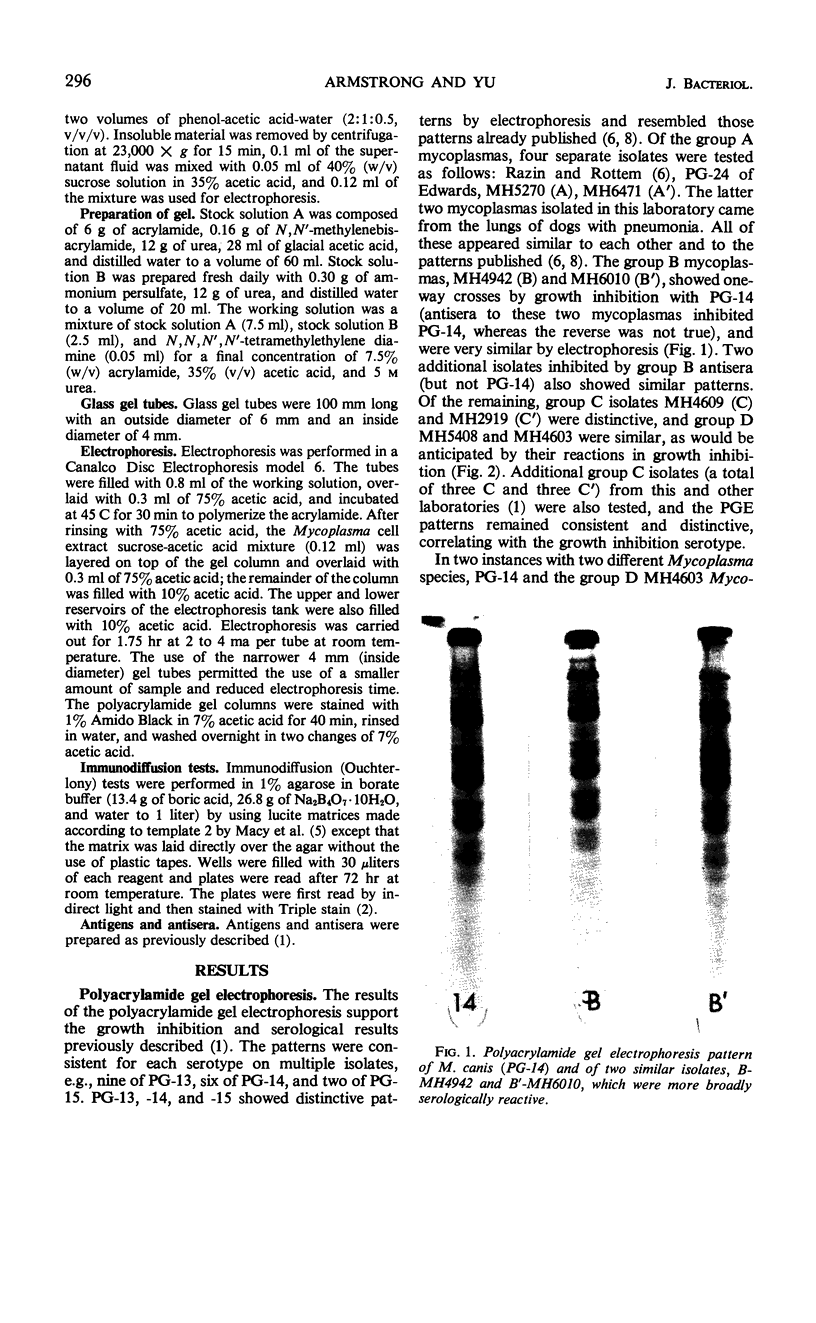
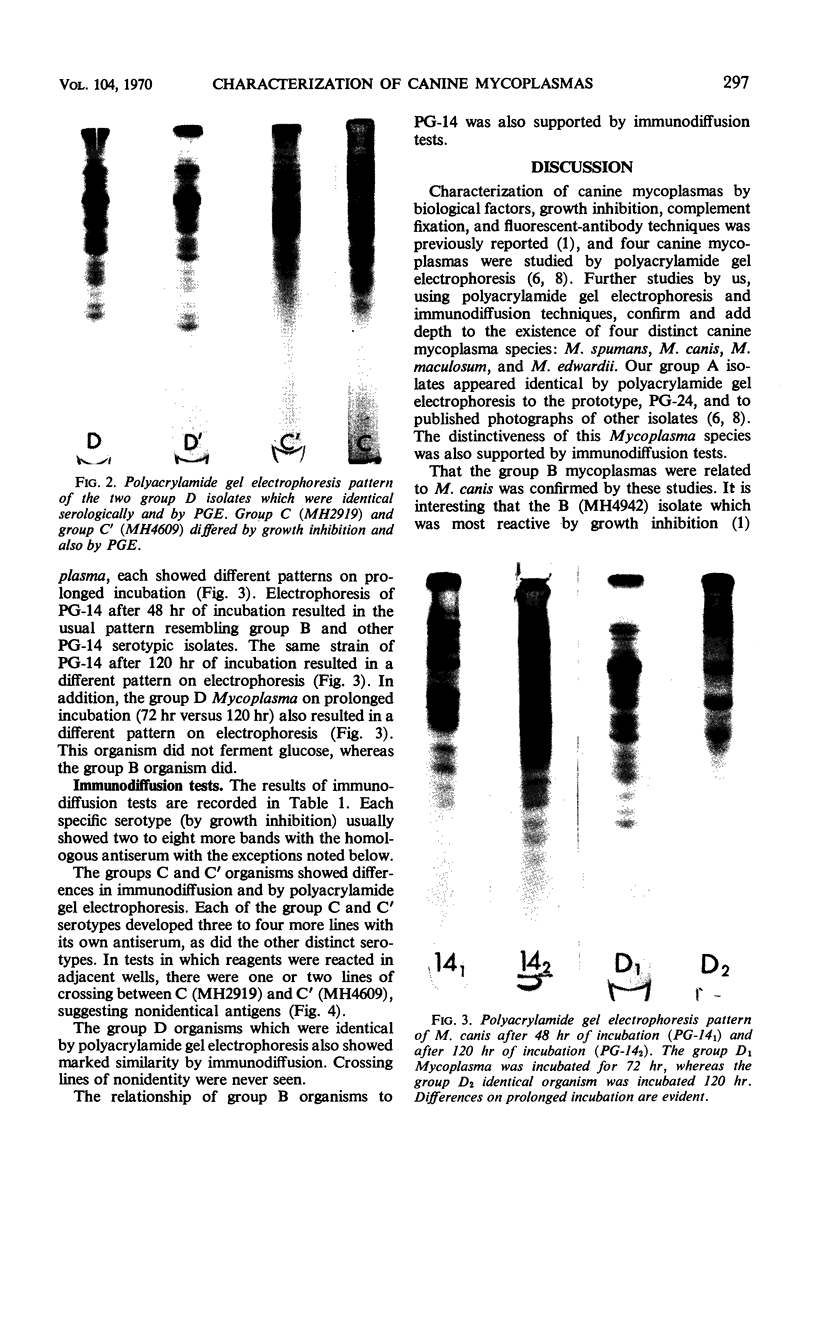
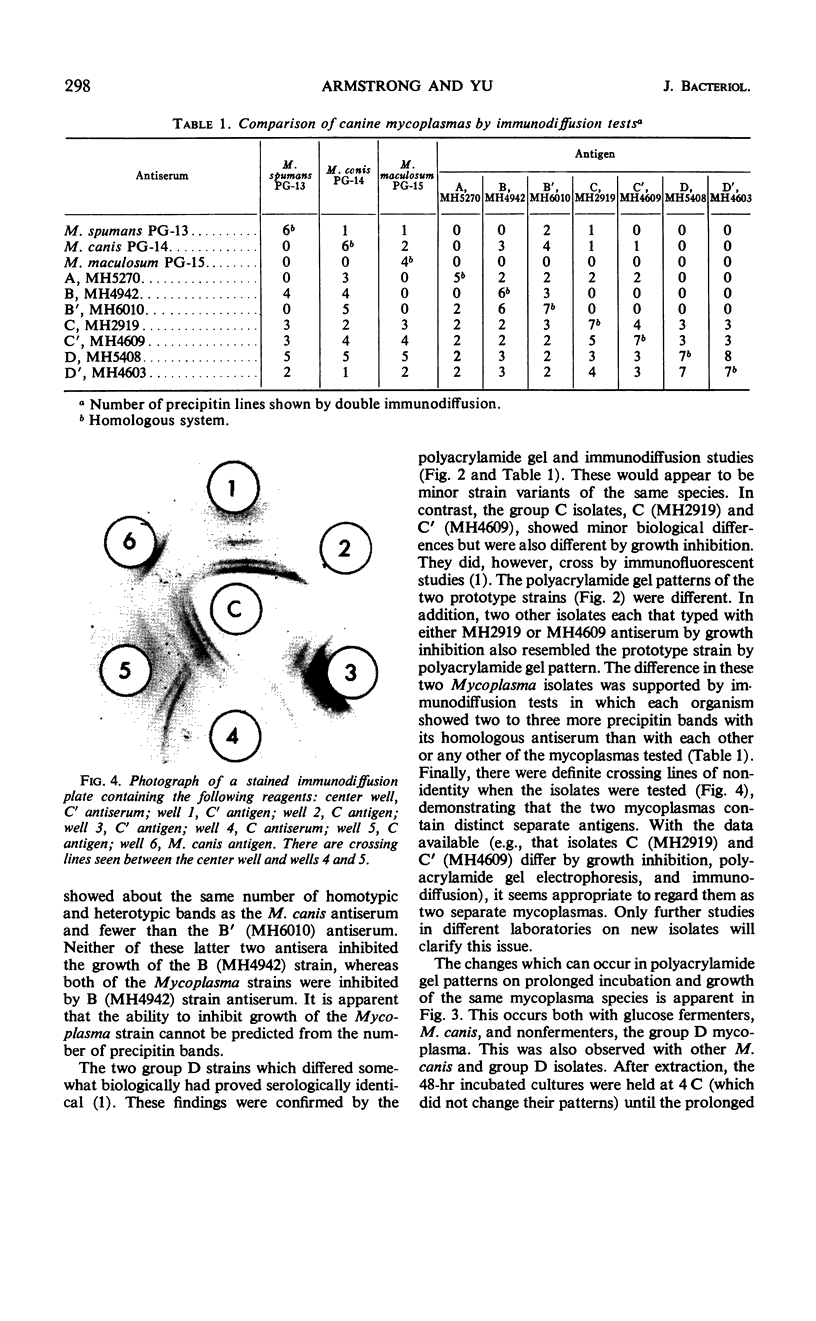
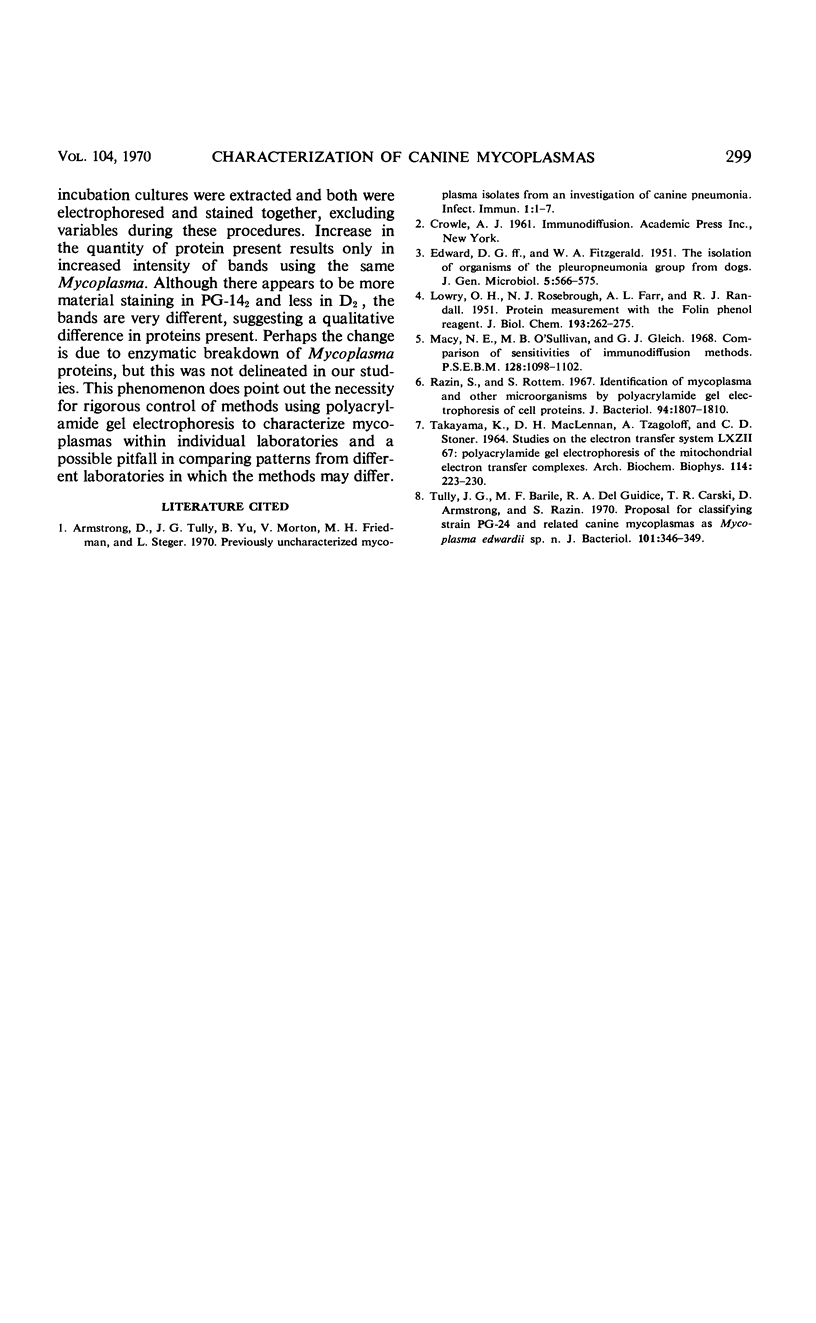
Images in this article
Selected References
These references are in PubMed. This may not be the complete list of references from this article.
- Armstrong D., Tully J. G., Yu B., Morton V., Friedman M. H., Steger L. Previously uncharacterized Mycoplasma isolates from an investigation of canine pneumonia. Infect Immun. 1970 Jan;1(1):1–7. doi: 10.1128/iai.1.1.1-7.1970. [DOI] [PMC free article] [PubMed] [Google Scholar]
- EDWARD D. G., FITZGERALD W. A. The isolation of organisms of the pleuropneumonia group from dogs. J Gen Microbiol. 1951 Aug;5(3):566–575. doi: 10.1099/00221287-5-3-566. [DOI] [PubMed] [Google Scholar]
- LOWRY O. H., ROSEBROUGH N. J., FARR A. L., RANDALL R. J. Protein measurement with the Folin phenol reagent. J Biol Chem. 1951 Nov;193(1):265–275. [PubMed] [Google Scholar]
- Razin S., Rottem S. Identification of Mycoplasma and other microorganisms by polyacrylamide-gel electrophoresis of cell proteins. J Bacteriol. 1967 Dec;94(6):1807–1810. doi: 10.1128/jb.94.6.1807-1810.1967. [DOI] [PMC free article] [PubMed] [Google Scholar]
- Takayama K., MacLennan D. H., Tzagoloff A., Stoner C. D. Studies on the electron transfer system. LXVII. Polyacrylamide gel electrophoresis of the mitochondrial electron transfer complexes. Arch Biochem Biophys. 1966 Apr;114(1):223–230. doi: 10.1016/0003-9861(66)90324-9. [DOI] [PubMed] [Google Scholar]
- Tully J. G., Barile M. F., Del Giudice R. A., Carski T. R., Armstrong D., Razin S. Proposal for classifying strain PG-24 and related canine mycoplasmas as Mycoplasma edwardii sp. n. J Bacteriol. 1970 Feb;101(2):346–349. doi: 10.1128/jb.101.2.346-349.1970. [DOI] [PMC free article] [PubMed] [Google Scholar]



